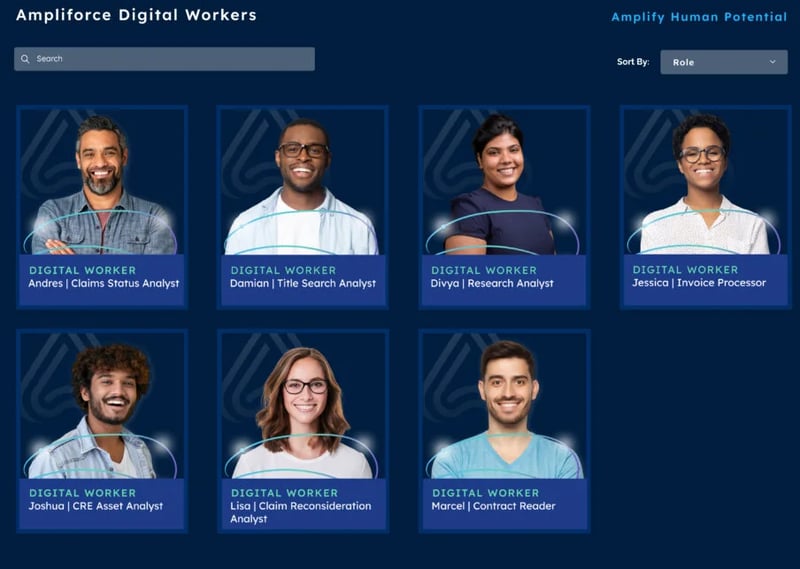The world we inhabit today has been shaped by automation that would have once been unimaginable—and yet, at times, it feels like we’re still only five minutes into a 24-hour poker game when it comes to how much more is about to change.
According to a 2013 Congressional Budget Office report, worker productivity in the U.S. in the 20th century was 1400 percent greater than in the 19th century. An MIT Sloan Management Review article, “The Mysterious Art and Science of Knowledge Worker Productivity,” claimed that there was a 5000 percent increase in manual labor productivity alone during the 20th century.
Stop and consider how much the way the world works has changed during the past 200 years. Now, stop and think about what a similar increase in productivity could mean for the way we’ll work in 21st century.
For business leaders today, few topics are as relevant as the future of work and the role new technologies will play in shaping the workforce of the future. However, despite enormous increases in the power of computers and the volumes of data we have created, the promise of knowledge worker productivity is still a topic of much debate. At best it seems that we are continuing on a trajectory of two percent annual increase in productivity across all categories of workers. However, a great deal is about to change around how technology will be used to run organizations and assist knowledge workers.
For the better part of the information age, we have focused on creating more and more applications and putting technology at the fingertips of knowledge workers. The result has been overburdened workers who spend far too much of their time thrashing about in an attempt to coordinate applications that were never built to work together. A recent study by R. Brumberg claimed that knowledge workers waste 32 days per year juggling technologies. Assuming there are 100,000,000 knowledge workers earning $38 per hour, working eight hours per day, that comes to nearly $1 trillion per year.
In many ways, knowledge work has reached a breaking point. In fifty years, when we look back on what we once called knowledge work, we’ll be appalled at how much time knowledge workers spent on activities and tasks that barely leveraged their capabilities.
Enter the Digital Worker
One of the driving forces that will accelerate knowledge worker productivity over the coming decades is the emergence of what are being called Digital Workers, a new generation of intelligent automation that offloads the tedium of knowledge work so that knowledge workers can do what they do best — innovate and create new sources of value.
Digital workers are AI that is enabled with skills to perform administrative tasks. They have the capability to learn and refine their skills, and the ability to work in collaboration with knowledge workers in order to remove the tedium and friction that otherwise slows value creation.
According to research conducted by McKinsey, a startling 40 percent of workers have indicated that they spend at least 25 percent of their time working on mundane repetitive tasks such as sending emails and entering data. Not only are these activities time-consuming, they take attention away from higher-return activities like building new client relationships and delivering responsive customer service.
Digital worker technology is moving rapidly. IBM has it’s Watson Orchestrate offering, and there is Boston-based Ampliforce, which describes their digital workers as “able to handle tedious manual tasks, so your human workers can focus on more impactful, meaningful roles…Digital workers improve productivity while simultaneously increasing job satisfaction and retention.” The approach Ampliforce takes is especially interesting. Their website looks more like a job site for contract workers. Their digital workers have resumes, skills, performance metrics and even headshots so that they look no different than what you’d expect to find if you were hiring a human worker to do claims processing, HR, accounting, or mortgage processing.

I have heard comments from many doomsayers predicting that humans will be replaced by an all-knowing AI, and as you read that description from Ampliforce, you may be thinking the same thing. To be clear – and I can’t emphasize this enough – that is not the purpose of the digital worker. While AI is certainly part of how they learn and perform tasks, digital workers are not a replacement for human intelligence and creativity. On the contrary, their purpose is to encourage and enhance it by removing the mundane and tedious aspects of knowledge work.
There are five ways that digital workers achieve this:
- They create a culture in which human workers do not feel threatened by technologies such as artificial intelligence. They see digital workers as their colleagues in accomplishing tasks.
- They help knowledge workers achieve greater job satisfaction and success by unburdening them.
- Digital workers learn and evolve similarly to human workers, and function as part of a team. Their collaboration enables ongoing evolution and increases their value to the organization.
- As digital workers evolve and learn, they become permanent assets of the organization.
- Digital workers allow human workers to amplify their value to the organization, and avoid being commoditized or replaced by technology.
Unlike other automation technologies, such as BPM, RPA, and IDP, digital workers collaborate as co-workers. They remove the tedium of knowledge work while creating new opportunities to leverage and amplify human capital. Unlike robotics in a factory setting, digital workers are anything but a zero-sum game, where human workers are pitted against technologies in a winner takes all battle for jobs. Digital workers have just the opposite effect; they create new value and innovation by amplifying the potential and impact of the only asset in the organization that can innovate—humans. That creates more jobs than it could ever destroy.
|
Related article: Choosing Change, Part II: By Randy Pennington |
An issue faced by nearly every organization relying on knowledge workers is job churn, which has reached unprecedented levels. Much of the reason for job churn is a fundamental dissatisfaction with the portfolio of tasks that fall under knowledge work. In a Korn Ferry survey of nearly 700 professionals, appropriately named "I’m Outta Here," almost a third of respondents said they were thinking of leaving their jobs, even though they didn’t have another one lined up. We now call this the Great Resignation, and it is just the opening salvo in an era of knowledge worker scarcity brought on by a perfect storm of turnover and new attitudes about work—attitudes that will only be magnified as Gen Z and Gen Alpha make their way through the workforce.
Keep in mind that all of this evolution of digital workers is happening in the context of a dramatic decrease and plateauing in population growth. In the same way that we simply cannot graduate enough doctors to care for our rapidly aging population, we cannot graduate enough knowledge workers to do all of the administrative work that will need to be done to take on the complexity of the challenges we will be facing over the coming decades, while continuing to innovate and create new sources of value.
Let me be blunt: digital workers will be a mandate for organizations trying to cope with this perfect storm. Anything less is simply unsustainable under current models for knowledge work.
In the same way that the transition from manual labor to automation allowed us to achieve unimagined increases in productivity during the past 200 years, the development and adoption of digital workers will drive similar advances over the next 200 years.
We can hardly begin to imagine what that world will look like.

Written by Thomas Koulopoulos
Tom Koulopoulos is founder and CEO of Delphi Group and author of Revealing the Invisible and ten other books on business, innovation and technology.



